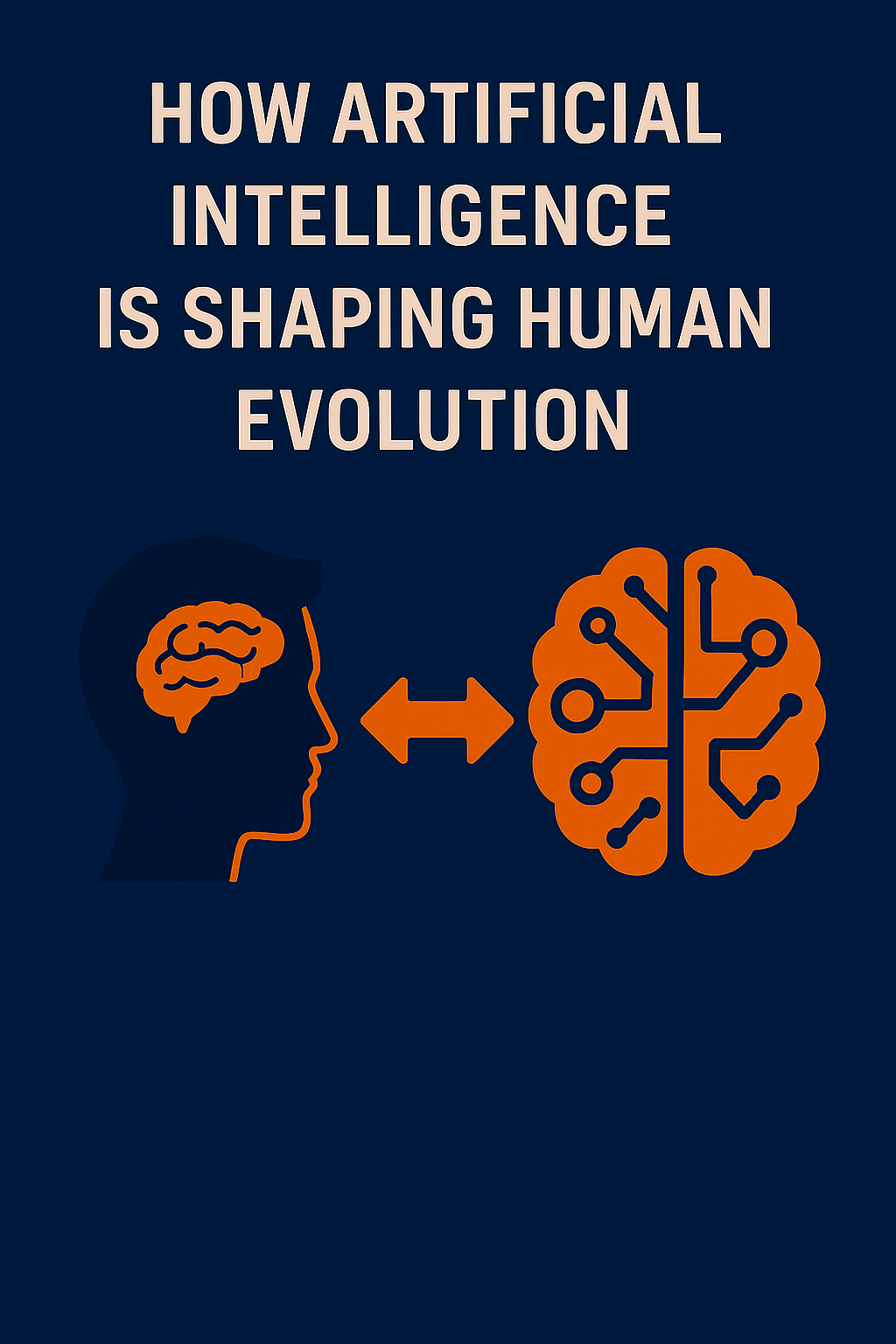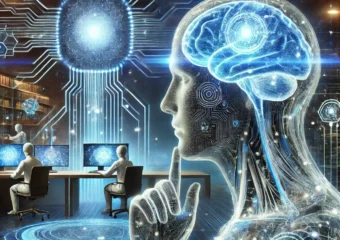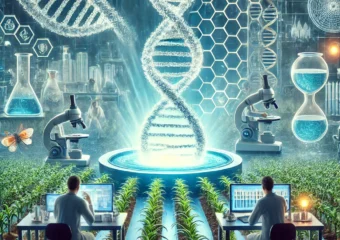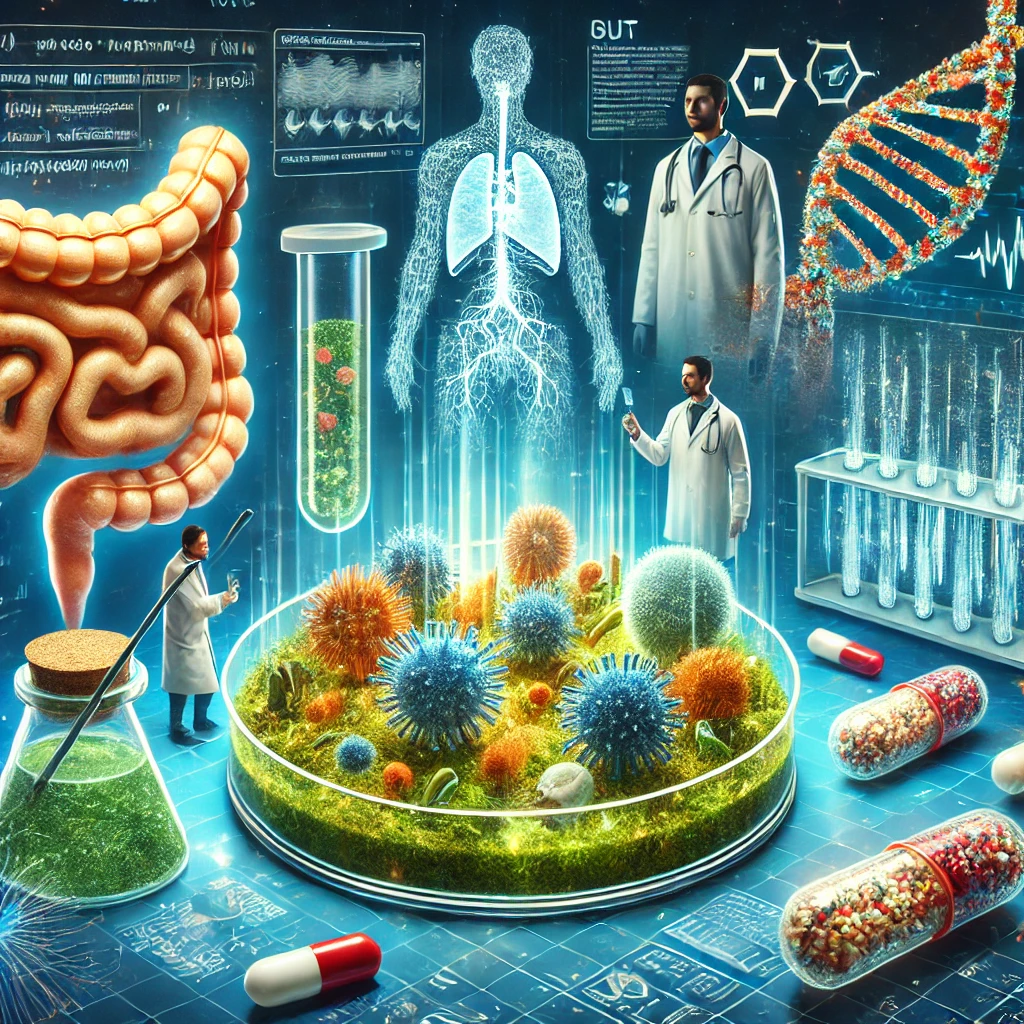In an era where technology permeates every facet of our lives, the interplay between artificial intelligence (AI) and human evolution has become a riveting subject of discussion. As AI systems become increasingly sophisticated, questions arise about how they might be influencing our cognitive development and even the physical structure of our brains. In this blog post, we delve deep into the transformative effects of AI on human evolution—from the theory of shrinking brains to the emergence of novel cognitive abilities. This comprehensive exploration examines historical context, current research, potential future developments, and the profound philosophical implications of this emerging dynamic.
The Convergence of Technology and Biology
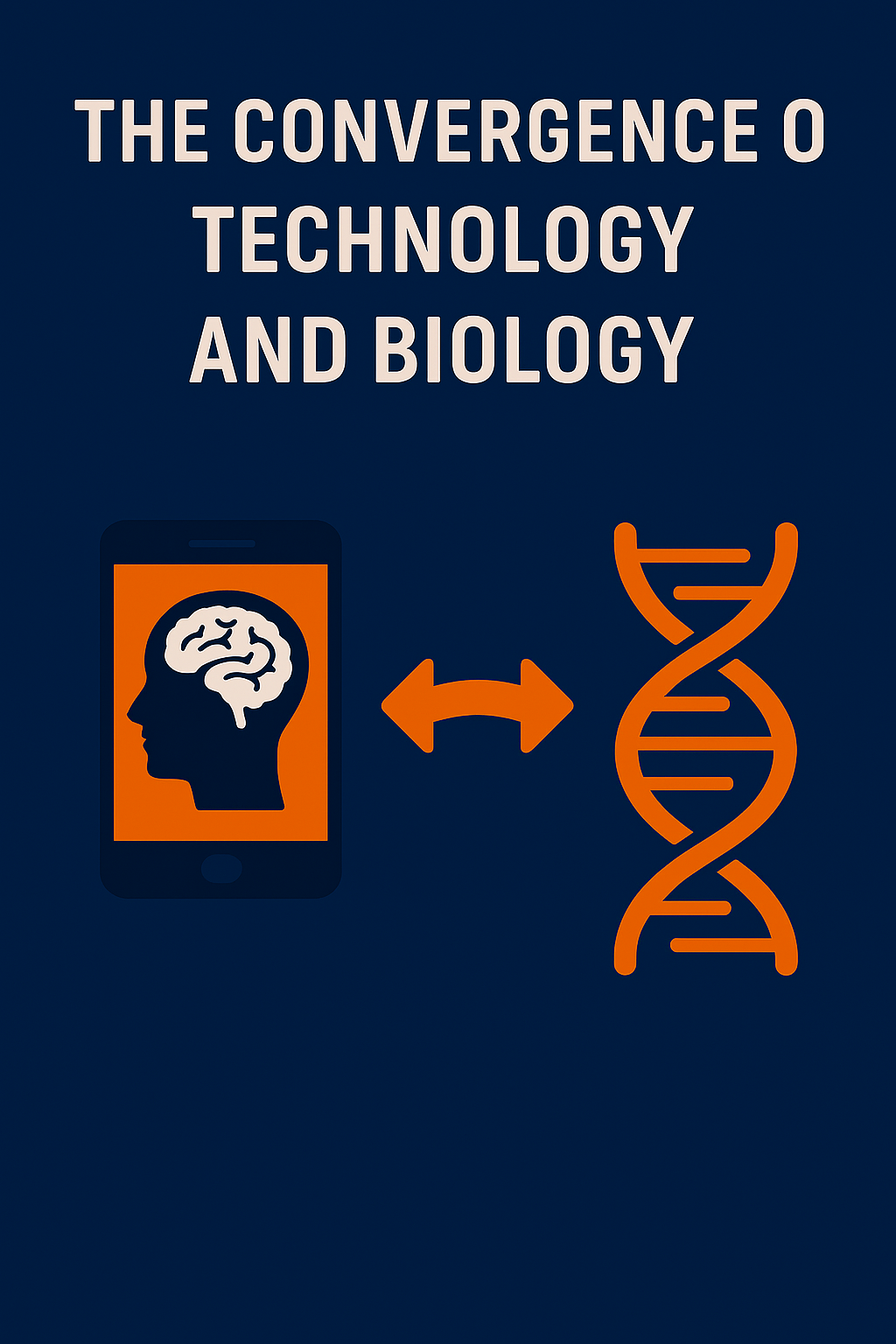
For centuries, human evolution was understood primarily as a slow biological process—one that occurred due to natural selection, environmental pressures, and genetic mutations. However, in the past few decades, technology has emerged as a potent external force capable of catalyzing rapid change. Artificial intelligence, once a futuristic concept, now plays an integral role in our daily routines, influencing the way we think, learn, and interact with the world.
Key Points Covered in This Post:
- A historical perspective on human brain evolution
- The concept of “shrinking brains” in response to modern technology
- How AI is augmenting cognitive abilities
- The potential future of human evolution in the age of AI
- Philosophical and ethical implications
Through rigorous analysis and accessible explanations, this blog aims to provide insights into the nuanced relationship between AI and human evolution. As we progress through each section, consider how the digital tools of today might be reshaping the very fabric of what it means to be human.
The Historical Trajectory of Human Brain Evolution
Ancient Influences on Brain Size and Function
Human evolution has always been marked by adaptations to environmental pressures. In prehistoric times, the evolution of larger brains was instrumental in developing tools, language, and social structures. Fossil records indicate that the human brain expanded significantly over millennia, largely due to the demands of survival in a complex, unpredictable world.
The Role of Social and Technological Challenges
Historically, the challenges of hunting, foraging, and avoiding predators required enhanced memory, problem-solving, and sensory processing. As societies grew more complex, new cognitive skills emerged to navigate intricate social networks and later, agricultural and industrial advancements. Each leap in social organization was paralleled by subtle modifications in brain structure and function, paving the way for modern human cognition.
The Modern Paradox: Shrinking Brains?
Recent studies have shown that the average human brain size has decreased slightly over the past few thousand years. While this phenomenon might seem concerning at first glance, some scientists argue that this “shrinking” may be a sign of increased brain efficiency. With the advent of technology, the human brain may have offloaded some cognitive tasks to external devices—a process that could be considered an evolutionary adaptation to support higher-order thinking without expending unnecessary energy.
The Digital Revolution: How AI Changes the Cognitive Landscape
Integration of AI into Daily Life
Artificial intelligence is no longer confined to research labs or futuristic movies. Today, AI is deeply embedded in our daily activities. From voice-activated assistants like Siri and Alexa to personalized recommendation algorithms on streaming services, AI is constantly influencing the decisions we make and the way we perceive information. This ubiquitous presence raises questions about how these interactions might be altering our brains over time.
Cognitive Offloading: Less Brain, More Technology
One of the most significant ways AI is impacting human evolution is through cognitive offloading—the process of relying on external devices to perform tasks that once required intensive mental effort. Navigation systems replace our internal maps, while search engines provide instant access to information that previously required memorization. This shift has profound implications:
- Energy Efficiency: With technological aids handling routine tasks, our brains may reserve energy for higher-order functions.
- Enhanced Problem-Solving: Freed from mundane details, individuals might be better equipped to tackle complex problems creatively.
- Potential Trade-offs: There is growing concern that excessive reliance on digital tools could compromise fundamental memory and attention skills.
AI-Enhanced Learning and Personalized Education
Modern educational platforms leverage AI to create customized learning experiences that adapt to the individual. This personalization can accelerate cognitive development by tailoring challenges to each student’s strengths and weaknesses. Some key benefits include:
- Immediate Feedback: AI-powered systems provide real-time corrections and suggestions, enhancing learning efficiency.
- Adaptive Complexity: As learners progress, the systems adjust the difficulty level, ensuring continuous cognitive stimulation.
- Lifelong Learning: The widespread availability of adaptive learning technologies encourages a culture of continuous education, which can significantly influence cognitive development across the lifespan.
Cognitive Enhancement: AI as an Extension of the Mind
Beyond simply offloading routine tasks, AI is also augmenting our cognitive capabilities. New technologies are emerging that interface directly with the brain, such as neural implants and brain-computer interfaces. These innovations suggest the possibility of a future where AI isn’t just an external tool, but an integrated extension of our neural networks.
- Memory Augmentation: Experimental techniques are being developed to enhance memory retention by stimulating specific brain regions.
- Faster Information Processing: Some early research suggests that direct neural inputs might speed up the processing of complex data, potentially giving individuals enhanced decision-making capabilities.
- Enhanced Creativity: By automating repetitive tasks, AI may free up cognitive resources, allowing for unprecedented levels of creative thinking and innovation.
The Phenomenon of Shrinking Brains: Efficiency or Decline?
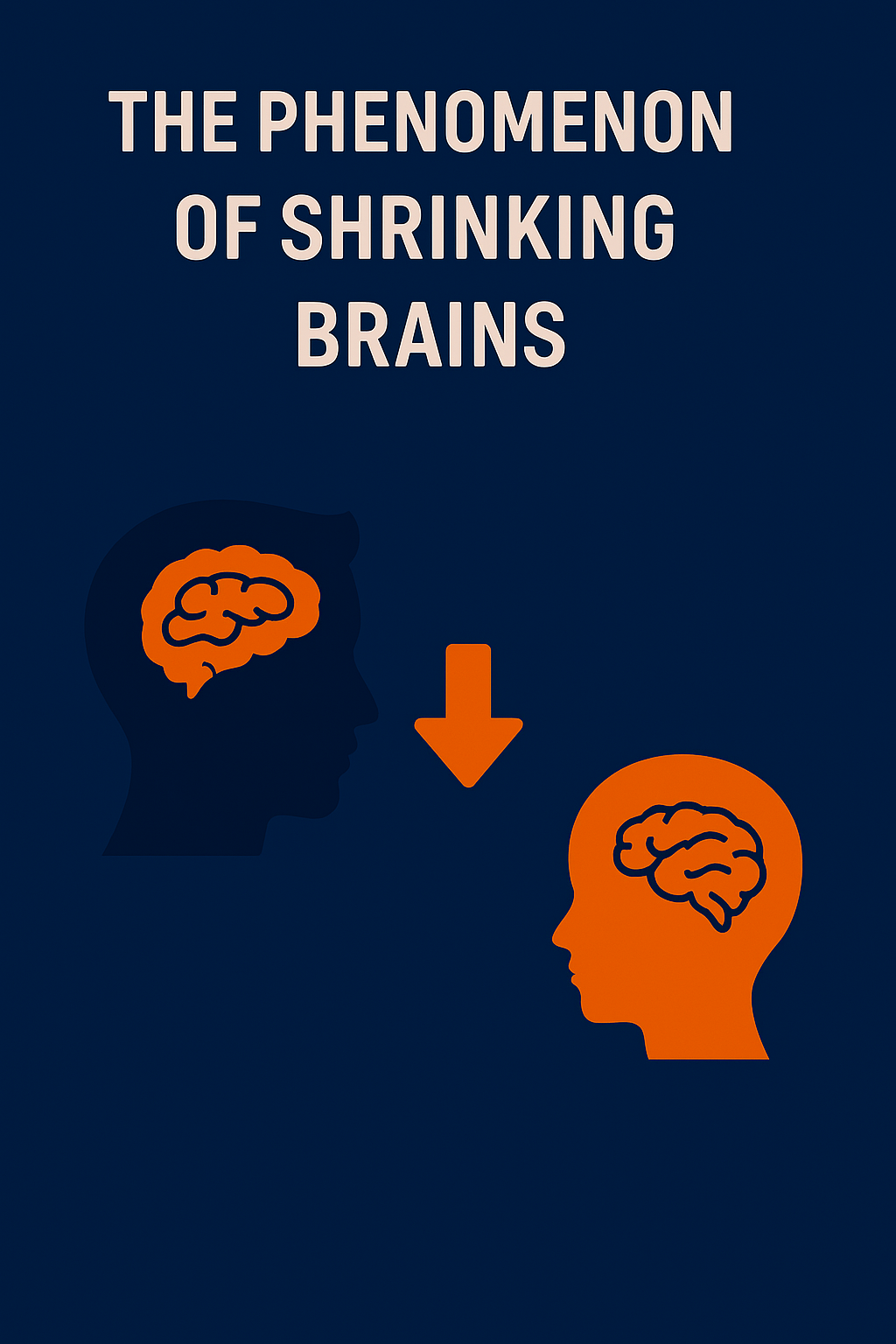
Understanding Brain Volume Reduction
The concept of shrinking brains might evoke negative connotations. However, many neuroscientists believe that a reduction in brain volume over time does not necessarily indicate cognitive decline. Instead, it may reflect a shift toward more optimized neural architecture. In other species, a more compact brain that maintains the same processing capabilities is often seen as a sign of evolutionary efficiency.
The Role of Environmental Complexity
Modern life, with its streamlined survival mechanisms and digital interconnectivity, presents a radically different environment compared to that of our ancestors. The decrease in brain size could be attributed to the decreased need for extensive raw processing power, as much of the heavy lifting is now shared with smart devices. This is not to say that human intelligence is diminishing; rather, it is becoming more specialized and, in some respects, more efficient.
Case Studies and Contemporary Research
Recent neuroimaging studies have revealed restructuring in certain brain regions associated with memory, navigation, and multitasking. For instance:
- Memory Regions: Some studies suggest that relying heavily on digital memory aids might reduce the brain’s need to develop extensive internal memory networks.
- Navigation Skills: With GPS systems guiding us through unknown territories, natural navigation abilities may see a reduced workload.
- Interconnectivity: The increase in connectivity and social network usage is reshaping brain pathways, potentially leading to more compartmentalized yet efficient processing structures.
These case studies underscore the adaptive nature of the human brain, emphasizing that changes in brain size may be less about a loss of capability and more about evolving efficiency.
New Cognitive Abilities Emerging in the Digital Age
Enhanced Multitasking and Information Processing
One notable cognitive shift in the digital age is an improved ability to simultaneously process multiple streams of information. In environments saturated with digital stimuli, the brain has become adept at switching between tasks rapidly. This has led to the emergence of new cognitive skills:
- Selective Attention: The ability to focus on relevant information while filtering out distractions is increasingly valuable.
- Parallel Processing: Modern data consumption habits require the brain to handle several tasks concurrently, strengthening neural connections that support multitasking.
- Rapid Decision-Making: With real-time data at our fingertips, the need for swift and informed decisions has never been more critical. This push toward instantaneous responses could be honing our decision-making abilities in ways that would have been unimaginable in the pre-digital era.
Social Cognition and Digital Interaction
The digital revolution has also transformed the way we communicate and relate to one another, thereby affecting our social cognition. Social media platforms, virtual meeting rooms, and online communities require a different set of interpersonal skills compared to face-to-face interactions. These include:
- Digital Empathy: The ability to read and interpret digital cues—such as emojis, tone of voice in video calls, and typing patterns—has become an essential skill for effective online communication.
- Cultural Fluency: Exposure to a global network of ideas and cultures has expanded our understanding of social norms and values, enhancing our adaptability in diverse settings.
- Collaborative Innovation: The rapid exchange of ideas in digital spaces fosters a culture of collective problem-solving, which in turn can lead to more innovative and integrative cognitive strategies.
The Emergence of Digital Intuition
Digital intuition refers to an almost instinctive understanding of how to navigate the digital world. Over time, repeated exposure to digital interfaces and algorithm-driven content may lead to new forms of neural wiring, fostering abilities such as:
- Predictive Behaviour: The brain can learn to anticipate patterns based on recurring digital stimuli, leading to faster and more accurate predictions.
- Adaptive Learning: Continuous interaction with personalized digital systems can create a feedback loop where learning is both instantaneous and deeply ingrained.
- Enhanced Pattern Recognition: With vast amounts of data at our disposal, our brains are increasingly tasked with identifying and interpreting complex patterns—an ability that is invaluable in both the digital and physical realms.
The Future of Human Evolution in the Age of AI
Integration of AI and Human Biology
Looking ahead, the integration of AI with human biology may become even more seamless. Concepts that once belonged to the realm of science fiction, such as neural implants and full brain-computer interfaces, are steadily moving toward reality. These technologies could fundamentally alter the trajectory of human evolution by:
- Improving Cognitive Performance: Direct neural stimulation could enhance memory, focus, and overall cognitive performance.
- Revolutionizing Learning Methods: Imagine a future where information can be downloaded directly into the brain, bypassing conventional educational pathways.
- Fostering New Forms of Creativity: With the heavy lifting of routine data processing outsourced to AI, human creativity may flourish, leading to innovations that redefine art, science, and culture.
Potential Evolutionary Trade-Offs
While the benefits of AI integration seem promising, there are also potential evolutionary trade-offs to consider. The most notable among these include:
- Dependency: Heavy reliance on AI for cognitive and everyday functions might diminish some intrinsic human abilities.
- Privacy and Data Security: As our brains and behaviors intertwine with digital platforms, the protection of personal data and cognitive privacy will be paramount.
- Ethical Considerations: The potential for AI to influence, and even potentially control, aspects of human thought raises profound ethical questions about autonomy and free will.
Societal Implications
The societal impacts of AI-driven human evolution are far-reaching. As technology continues to reshape cognitive development, educational models, professional environments, and interpersonal relationships might all undergo significant transformation. Industries that thrive on human ingenuity could see a radical shift in how talent is nurtured and evaluated. Policy makers and educators must work hand in hand with technologists to ensure that the evolution enhanced by AI is equitable and accessible to all.
A Collaborative Future: Humans and AI as Partners
The most optimistic vision for the future is one where humans and AI work in tandem to elevate cognitive capabilities rather than diminish them. In this model, AI supports and amplifies human potential by handling low-level processing tasks, leaving the intricacies of creativity, empathy, and critical thinking to the human mind. Such collaboration could lead to breakthroughs we have yet to imagine, bridging the gap between biological evolution and technological progress.
Philosophical and Ethical Dimensions
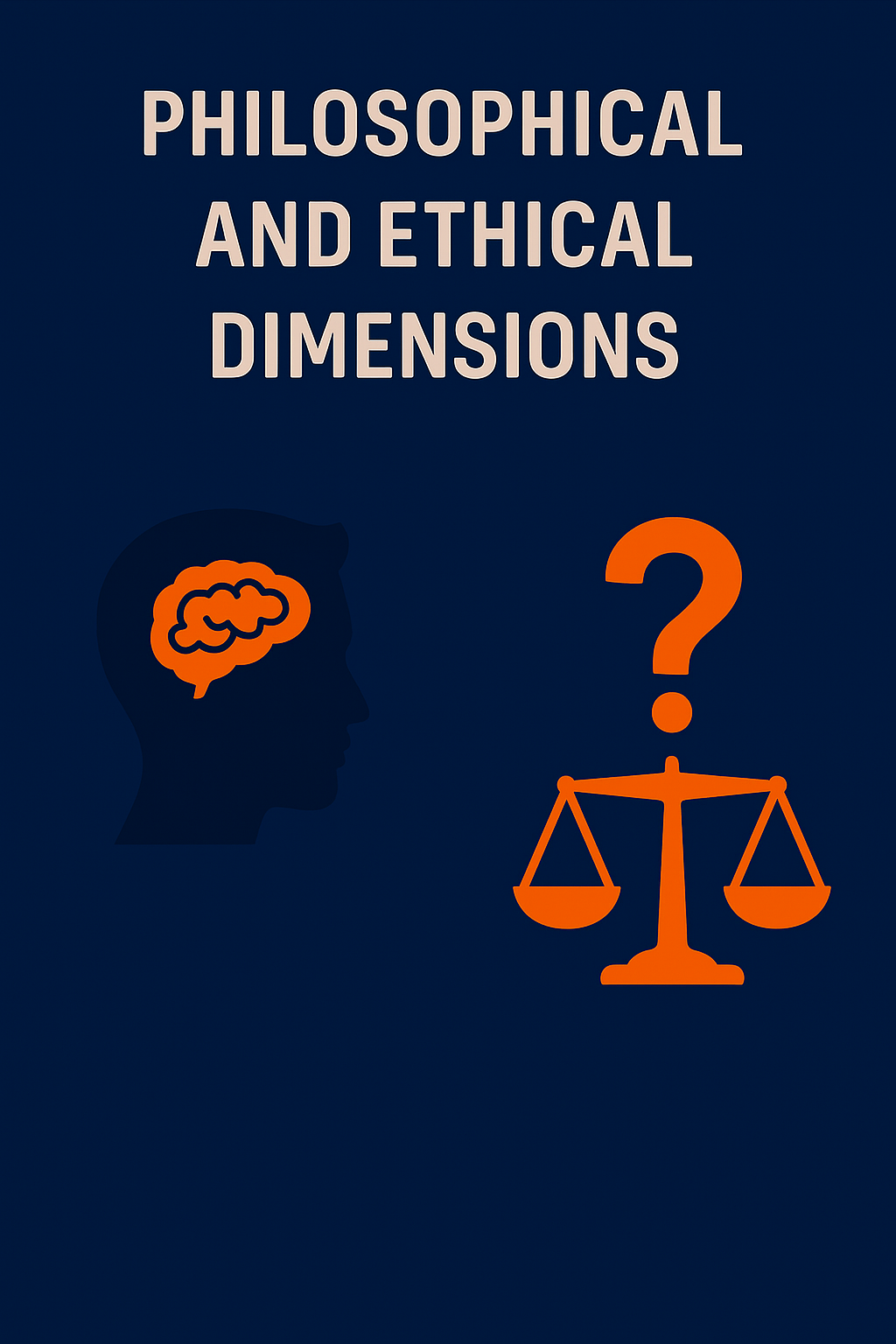
Rethinking the Concept of Intelligence
The integration of AI into our daily lives has sparked a philosophical re-examination of what intelligence truly means. Traditionally, intelligence has been associated with human problem-solving, creativity, and emotional depth. However, as machines become capable of complex reasoning and learning, the boundaries between human and artificial intelligence are blurring. This evolving definition challenges us to consider:
- What constitutes genuine creativity?
- Can artificial and human intelligence coexist for mutual benefit?
- How do we measure cognitive success in an era where external aids are ubiquitous?
The Ethics of Cognitive Enhancement
With the allure of digitally enhanced cognition comes a host of ethical questions. Should there be limits on how much AI can augment human capabilities? What are the societal implications if cognitive enhancement is available only to a privileged few? Addressing these questions is critical as we navigate a future where technology could potentially exacerbate existing inequalities. The ethical debate hinges on transparency, accessibility, and ensuring that cognitive advancements benefit society as a whole.
Preserving Human Identity Amid Technological Advancements
One of the most profound challenges of this brave new world is preserving the essence of human identity. As artificial enhancements become commonplace, there is a risk that the very core of what makes us human might be obscured by digital overlays. Balancing our rich heritage of emotional depth, intuition, and creativity with the efficiency of AI is essential for maintaining a sense of authentic self in a rapidly transforming society.
Practical Steps Toward Embracing AI-Enhanced Evolution
Educating for the Future
Integrating AI into the evolutionary narrative calls for a paradigm shift in education. Future-focused curricula should emphasize not only the technical skills required to work with AI but also the critical, ethical thinking necessary to navigate a world where human cognition and machine intelligence are deeply intertwined. Educational institutions can lead the way in fostering an adaptive mindset that prizes lifelong learning and encourages healthy skepticism of technological pitfalls.
Building Resilient Cognitive Skills
Even as AI takes on more complex tasks, it remains imperative for individuals to cultivate resilient cognitive skills. Strategies to bolster mental agility include:
- Mindfulness and Meditation: Strengthening focus and resilience through practices that enhance cognitive control.
- Cross-Disciplinary Learning: Encouraging the blending of artistic creativity with scientific inquiry to stimulate diverse neural pathways.
- Regular Digital Detoxes: Allowing the brain to rest and reorganize by periodically stepping away from digital inputs.
Fostering Collaborative Human-AI Ecosystems
Innovation thrives in environments where human creativity and machine efficiency converge. For industries, educators, and policymakers, the imperative is to create ecosystems that promote collaboration rather than competition between human and artificial intelligences. Such ecosystems should prioritize:
- Ethical AI Development: Ensuring that AI systems are developed with a strong ethical foundation that respects user privacy and promotes fairness.
- Interdisciplinary Research: Encouraging expertise from neuroscience, computer science, ethics, and social sciences to collectively shape the future of human-AI interaction.
- Community Engagement: Creating platforms where experiences, challenges, and successes of human-AI collaborations can be shared to foster collective improvement.
Conclusion
As we stand at the crossroads of a new evolutionary frontier, artificial intelligence emerges as a powerful force influencing the very core of human cognition. The dynamic interplay between shrinking brain sizes, cognitive offloading, and the emergence of novel mental capabilities underscores a transformation that is redefining what it means to be human. AI is not merely a tool—it is becoming an extension of the human mind, enhancing our ability to process information, solve complex problems, and navigate an increasingly interconnected world.
While some may worry that our reliance on digital technology might lead to a loss of innate human skills, others argue that this transformation is a natural progression—a way for our brains to evolve in response to the tools at our disposal. The evidence suggests that human cognition is not diminishing but rather adapting to become more efficient and specialized for the challenges of the 21st century. In this light, the changes observed—whether in brain structure or cognitive function—should be viewed not as losses, but as evolutionary gains.
The future holds tremendous promise. As AI continues to develop and integrate into the intricate fabric of our lives, the potential for cognitive enhancement and the emergence of new forms of intelligence grows ever more tangible. Yet, this brave new world also calls for reflection and deliberate action. Educators, researchers, and policymakers must ensure that the benefits of AI-enhanced cognition are distributed equitably, while also safeguarding against ethical pitfalls and preserving the essential aspects of human identity.
This journey into understanding how artificial intelligence is shaping human evolution invites us to rethink not only the capabilities of our own minds but also the profound interdependence between biological heritage and technological innovation. Embracing AI as a partner rather than a replacement empowers us to build a future where evolution is not a passive process dictated by nature alone, but an active, dynamic interplay between human ingenuity and machine intelligence.
In conclusion, as technology reshapes our cognitive landscape, it is imperative that we approach this transformation with a balanced perspective—one that celebrates the immense potential for creative collaboration while remaining vigilant about the ethical and societal implications. The digital innovations of today are not erasing our past; they are building on it, providing new avenues to express our creativity, expand our intellect, and ultimately, shape the course of human evolution.
